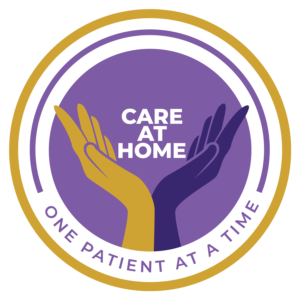30 Questions to Ask a Home Care Agency
If you have decided to get a caregiver for your family member through a home care agency, you must go through a careful selection process. This is essential so that your choice makes a good fit for your loved one and gives you peace of mind about their care.

To help you make a good choice, we have compiled a list of 30 questions to ask when interviewing a caregiver for the elderly or any home care agency. By asking these open-ended questions for caregivers, you can gather crucial information about their services, qualifications, policies, and approach to care. Continue reading to find questions to ask a potential home care provider.
1. Is your agency licensed and certified to practice?
Caregiver agencies must follow regular governmental guidelines for health care providers, such as licensing and certifications. While these restrictions are different per state, you must confirm that the agency you want to work with is accredited to practice.
2. What is the range of your service offerings?
Asking about the agency’s range of services will help you determine if they can meet your loved one’s specific needs. Some people may have light housekeeping needs, and others may need a registered nurse overseeing their care due to a critical condition. If your loved one requires specific assistance with certain actions, it is crucial that the agency you choose can provide these particular services.
3. Can you provide personal and skilled nursing care?
Depending on your loved one’s condition and requirements, they may need help with tasks such as bathing, dressing, mobility assistance, or even skilled medical care. The cost for these may not be all-inclusive, and to ensure that your loved one’s specific care needs are met, this question is essential.
4. Do you create personalized care plans based on needs?
Every individual has unique care needs, and effective care requires that these special needs are met. In your first meeting with a potential agency, you must confirm that the caregiver agency can assess your loved one’s specific needs and create a tailored plan that outlines the type of care and schedule that will best suit their well-being.
5. Do you offer specialized care for certain conditions?
If your loved one has a specific medical condition such as dementia or Parkinson’s, it is crucial to ensure that the caregiver agency has experience and expertise in providing specialized care for these conditions. This is especially important when interviewing a caregiver for the elderly. When the caregiver has technical knowledge and training, you can expect a higher quality of care.
6. How do you select and screen your caregivers?
You want to ensure your family member is under the care of a reliable person. As such, it is only fitting to understand the agency’s hiring process and caregiver selection criteria. If the answer provided shows you a robust hiring process, which includes interviews, background checks, and reference checks, you can then be assured that the caregiver assigned to your family member is qualified and trustworthy.
7. Do you perform background checks on your caregivers?
For your peace of mind, you should work with agencies that offer a background check requirement for the caregiver. This assures you of the safety and well-being of your loved one. These background checks may cover criminal records, certifications, etc, that could affect the caregiver’s suitability for the role.
8. What qualifications, certifications, and experience do your caregivers have?
You want to ensure that the agency’s caregivers have the qualifications to care for your loved one. For specific circumstances, such as elder care or caregiving for certain conditions, these qualifications and experience are essential. They signal that you are entrusting your family member’s care to a competent person.
9. How do you ensure a good match between the caregiver and my family member’s personality and needs?
While the caregiver-client relationship is a professional one, the emotional and social sides are just as important. Your loved one will feel comfortable with a caregiver who matches their personality, which is essential for the well-being and comfort of your loved one.
10. What type of training do your caregivers receive?
A marker of an excellent caregiver agency is when staff receive continuous training on best practices for providing care. You want an agency that is committed to the professional development of their caregivers, as this shows they will also commit to delivering the highest standard of care.
11. How do you monitor the performance and quality of care your caregivers provide?
A good agency will have systems in place to evaluate this. It may be in the form of regular check-ins, client feedback surveys, or days of supervision. Knowing that there is effective monitoring will allow you peace of mind.
12. What is your process for coordinating care?
If your loved one requires multiple caregivers, say for medical-related reasons, your agency of choice must be able to liaise across several parties. For example, the family caregiver may need to talk to the primary caregiver, doctor or even family members. The structure for coordinating care is, therefore, essential to ensure everything is seamless and stays comprehensive.
13. Are you insured?
Ensuring that the agency you choose is insured and bonded for eventualities that may arise during caregiving is very important. This protects you and your loved one in case anything untoward happens.
14. Do your caregivers carry liability insurance?
The caregiver’s liability insurance is another layer of protection for both you as the client and the agency. This should accord you certain assurances for personal injury or property damage claims that may arise while the caregiver provides care.
15. Are your caregivers covered by workers’ compensation insurance?
If a caregiver ever gets injured on the job, you want to be assured that you are financially protected and will not be held liable for workers’ compensation. This is why you must ask the agency if workers’ compensation insurance covers the caregiver.
16. What safety measures do you have in place to ensure the well-being of my family members?
Safety protocols are always necessary, especially for the vulnerable. You need to ensure that the safety of your loved one is a priority for the agency. Ask questions about protocols for fall prevention, emergencies, medication management, and overall risk management practices.
17. Are you able to accommodate specific scheduling requests or changes?
You may require a flexible care routine because of your family situation or your loved one’s changing care needs. In such a case, you must be assured that the agency can accommodate schedule changes. This will help ensure that your family member’s care routines stay seamless and care continues irrespective of changing plans.
18. Do you provide backup caregivers in case the assigned caregiver cannot work?
Uninterrupted care is necessary in most situations, and you want to ensure that if, for any reason, your assigned caregiver is unavailable, a backup can be provided. Such contingency plans hint at the agency’s preparedness to handle situations.
19. How do you handle emergencies or unexpected situations?
How a home care agency handles emergencies or unexpected situations can affect the well-being and safety of your loved one. This is why it is essential to ask about their protocol, process, and response time for handling emergencies.
20. What is your process for handling and resolving complaints or concerns?
For engagements as sensitive as home care, open communication lines are essential. You want to ensure that the way the agency handles and resolves complaints or concerns is professional and swift. A well-defined process demonstrates that the agency is committed to client satisfaction.
21. Can you provide references from current or previous clients?
In specific care situations, you may have better peace of mind knowing that the agency has worked with people with similar circumstances as your loved ones. Asking this question allows you firsthand feedback about the home care agency’s services and the quality of care provided.
22. Do you involve your clients and their families in the care plan development process?
If you want to be able to give input to how your loved one is cared for, you must confirm that the agency values client and family input and actively engages them in the care planning process.
23. How often can I expect updates on my loved ones’ well-being?
When the family is not always present with the caregiver, regular updates on the care provided and any changes in the client’s condition are necessary for family members. If this is your situation, the agency you choose must prioritize effective communication and timely updates.
24. Will I be assigned an alternative caregiver if I find the assigned one unsatisfactory?
If, for any reason, the assigned caregiver to your loved one does not make a good fit, the home care agency must be willing to make replacements. You should ask about the process and if it comes at an extra cost.
25. What is your process for ending or changing care services?
Uncertainties are typical in life, but they must be mitigated, especially in care situations. Asking this question will help you in future planning. This will ensure that there is a smooth transition in case circumstances change or if there is a need to modify the care plan, your loved one’s care stays uninterrupted.
26. Is there a registered nurse available to oversee and coordinate care?
If the caregiver does not possess the skills for specialized care, they must be supervised for your loved one’s medical needs. You want to ensure that your chosen agency has adequate end-to-end care as required.
27. What kind of schedule should I expect?
While the work schedule of your family member’s caregivers depends on the specific circumstances, it is vital to confirm that the agency’s work hours and schedules suit your situation. Some agencies have restrictions such as a minimum number of hours, and others don’t.
28. What are the costs associated with your home care services?
As with everything else, your budget remains a significant factor in decision-making. Home care agencies can be expensive, and you want to ensure that your agency or choice can provide the services you require at a reasonable rate.
29. What payment options do you offer?
Still, on budgets and the financial impact, you should also consider the routine and options available for the agency’s payment to ensure it fits your preferences.
30. Will you work with my loved one’s insurance provider?
Your choice of home care agencies may have restrictions on some insurance plans. You must ask about the methods accepted and the coverage possible.
Having adequate information is essential when making an informed decision on caregiver options. With the above interview questions for caregivers covering care options, supervision methods, protection, and financials, you are rightly prepared to select the best caregiver for your loved ones’ needs.

